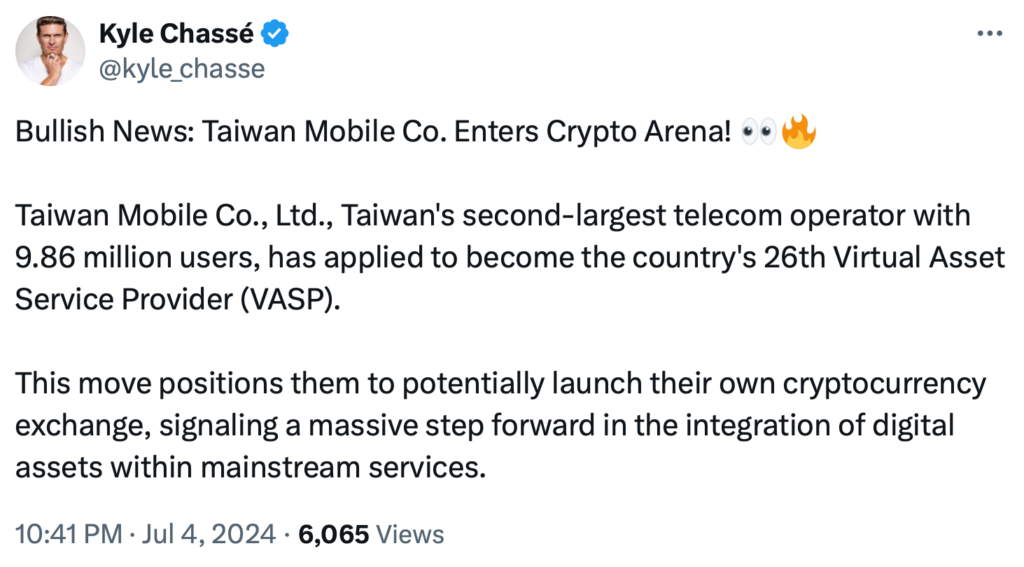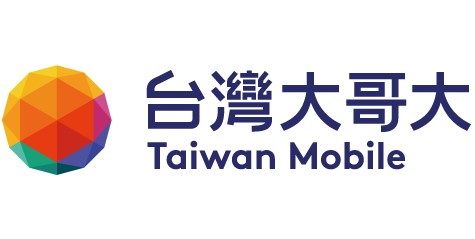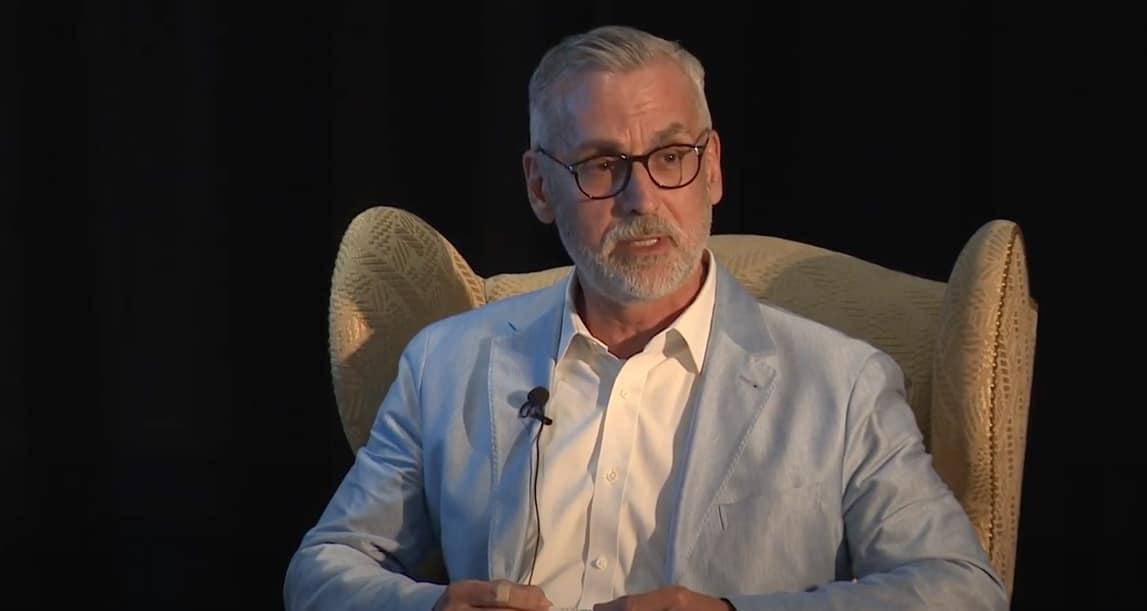Taiwan Mobile, the second-largest telecommunications company, has successfully entered the crypto market, contributing its expertise and resources.
According to local reports, Taiwan Mobile, the nation’s second-largest telecommunications provider, has been granted a virtual asset service provider (VASP) license by the Financial Supervisory Commission (FSC). The permit establishes a pathway for the establishment of a cryptocurrency exchange.
Taiwan Mobile is the 26th company licensed as a VASP, referred to as Taiwan Big Brother in Chinese. Bloomberg speculated that Taiwan Mobile was considering purchasing an existing exchange, as it has been considering a position in the crypto market for more than a year.
It was licensed under Fusheng Digital, which Taiwan Mobile owns. Lin Zhichen manages both organizations.
The domestic industry of VASPs is both diverse and regulated
Taiwan Mobile met several anti-money laundering (AML) requirements to obtain the VASP license. Once those obstacles are resolved, the company is eligible for membership in the Taiwan Virtual Asset Service Provider Association, a self-regulatory organization established in June.

The United Daily News stated that the entry of a significant corporation will bolster the industry, as most of the VASP association’s members are startups. Chairman Zheng Guangtai stated that the association gains new experience and resources due to the inclusion of companies from a diverse range of sectors.
Crypto regulation evolving, becoming stricter in Taiwan
In mid-2023, the FSC assumed responsibility for crypto regulation. In September, it established management guidelines for cryptocurrency businesses and prohibited foreign operators.
The following month, a measure was introduced into the Taiwanese parliament that supported FSC guidelines with fines.
In March, the FSC declared that it would introduce a measure into parliament to enhance consumer protections and tighten regulation. In May, the Justice Ministry proposed amendments to AML laws that would affect VASPs by making the responsible parties liable for prison terms for the violations they conduct.
In the same month, Binance and the Justice Ministry worked together to resolve a money laundering case valued at $6.2 million. Consequently, Nine individuals were accused of organized crime, fraud, and money laundering.



